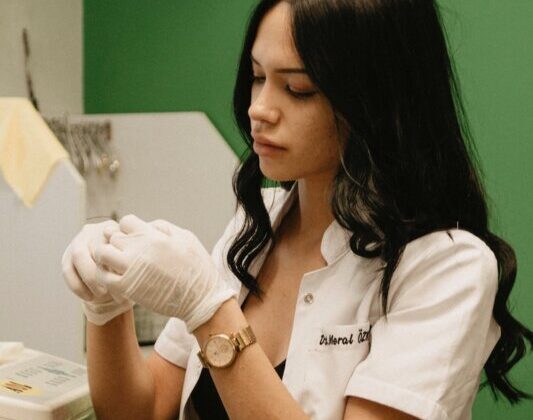Illegal substances such as marijuana, meth, cocaine, heroin, and ecstasy are dangerously addictive and can harm an individual’s life when consumed.
Illicit drugs are illegal to buy, possess, and sell and are extremely dangerous when taken continuously. Knowing when to stop and when you’ve taken it too far is very important to avoid further damage. Addicts who commit to learning the warning signs and reach out for help are well on their way to recovering and resuming a happy and healthy life. While tackling this problem is not easy, taking the first steps by reading on will help.
The information included covers what you need to know about illicit drug abuse and addiction and some of the treatment options available.
What are illicit drugs?
Cocaine, marijuana, meth, ecstasy, and hallucinogens are all considered illicit drugs and are illegal to use or to possess. These drugs are considered highly addictive and, if consumed regularly, can lead to severe damage to an individual’s social life, family relations, work commitments, and overall health.
Signs of illicit drug addiction
Even if you’re taking small doses, usage of illegal drugs can be a severe health risk to your body. By taking the first step and using it for the first time, you risk becoming addicted. Symptoms of drug addiction vary depending on which substance used, but most often show up in the following ways:
- Relationships with family members, friends, and partners will begin to suffer.
- Struggling to keep up with various commitments and uphold responsibilities.
- No motivation to do anything.
- Disappearing without explanation.
- Breaking or getting in trouble with the law.
- Becoming violent or exhibiting unusual behavior.
- Making excuses and breaking promises.

Effects of illicit drug abuse
Overcoming an addiction to drugs such as cocaine, meth, and heroin can be especially challenging to overcome as they demand both a physical and psychological dependence from the user. A debilitating physical dependence indicates the first signs of drug abuse disorders. Physical dependence is a result of the user’s new-found tolerance to the drug.
As the tolerance begins to build over time, the addiction forces the individual to take the drug in higher doses to achieve the desired effect. The higher the tolerance, the more painful the symptoms are once the sequence is broken and the user stops taking the drug.
Illicit drug abuse tends to be the hardest to withdraw from and can cause patients to induce various symptoms. Familiarising yourself with signs can be helpful if you are dealing with someone going through the withdrawal process or if you are recovering from drug addiction yourself.
Most-common side-effects of illicit drug abuse
If you suspect that an individual is abusing illicit drugs, it’s a good idea to look out for the following obvious physical signs or symptoms.
- Generally looking unwell or unhealthy.
- Skin showing signs of sores or spots.
- Stained or rotten teeth.
- Runny nose and constant coughing.
- Hair Loss or hair thinning.
Other signs that addiction has taken over are often related to drug withdrawal and tend to cause physical symptoms such as sweating, heart palpitations, seizures, nausea, and hallucinations.
Psychological dependence is perhaps the most challenging symptom to overcome for sufferers. Drug abuse tends to manifest psychologically in the individual’s mind and can create the illusion that users need to take drugs to feel normal again. Psychological dependence tends to differ depending on the person.
This symptom leads patients to believe that they cannot carry out everyday tasks without using the drug. This vicious internal battle can be challenging to overcome as the sufferers know what has to be tackled to live a healthier and happier life but cannot break away from the addiction. They believe that they will ultimately fail without it.

Getting Help For Your Addiction
The road to recovery isn’t an easy one, and the sufferer will face plenty of obstacles, whether a recovering addict or as a family member watching on. Sobriety is an achievable goal with the right help and support structure to be with you along the way. Finding the right treatment plan is vital and will be the thing that saves the sufferer and relationships with the individual’s family and wider circle.
The individual thinks the benefit of using drugs is nothing compared to being sober and living a happy, healthy, and fulfilling life surrounded by good people who support the sufferer and believe in the journey.
The Right Treatment Options
Every person is different and has different requirements to tackle thor particular addiction issues. Health care professionals will choose the proper treatment according to the problem at hand. Listed below are some of the most common forms of treatment; the list is not exhaustive but gives an idea of the available treatments. If you think your alcohol or drug addiction is getting the better of you don’t wait any longer to get help. Alcohol rehabilitation in New Jersey is always a great option since they specialize in these types of recovery processes.
- Counseling – various types
- Trusted medication programs
- Long-term care and follow-ups
- Medical devices and applications to help with detox
- Rehabilitation options
- Mental health care
By taking control and the first steps to recovery, the sufferer will soon realize it is possible to get through any addiction and find happiness. The first steps are always the most painful, but it is possible to live a clean, healthy, and happy life with the right help and guidance.











